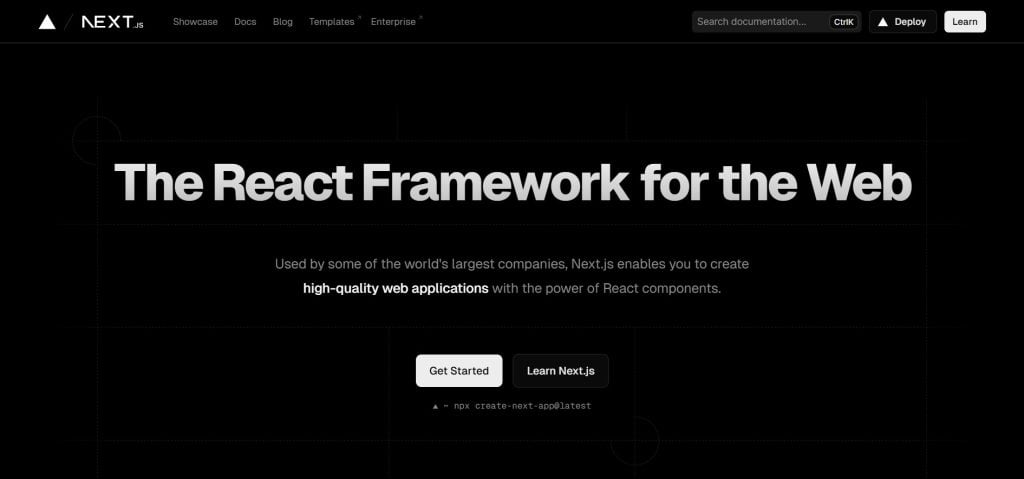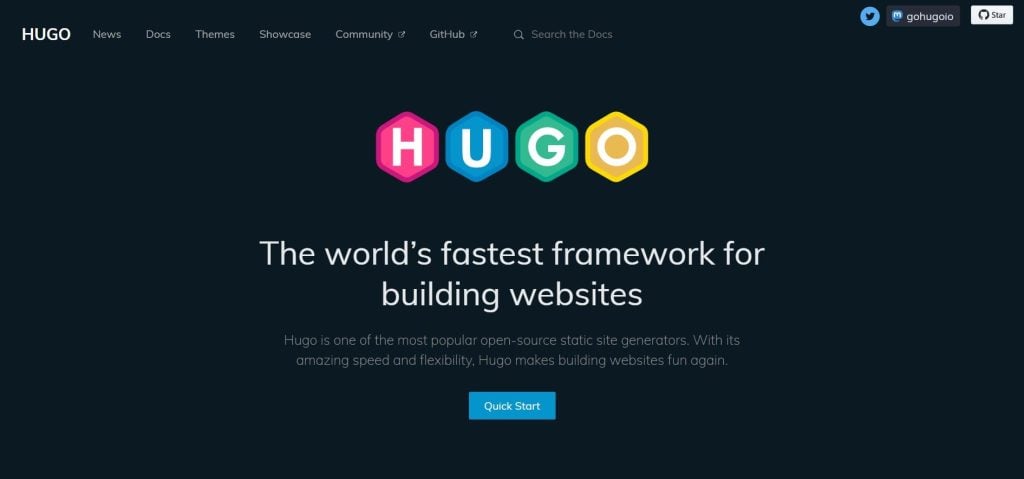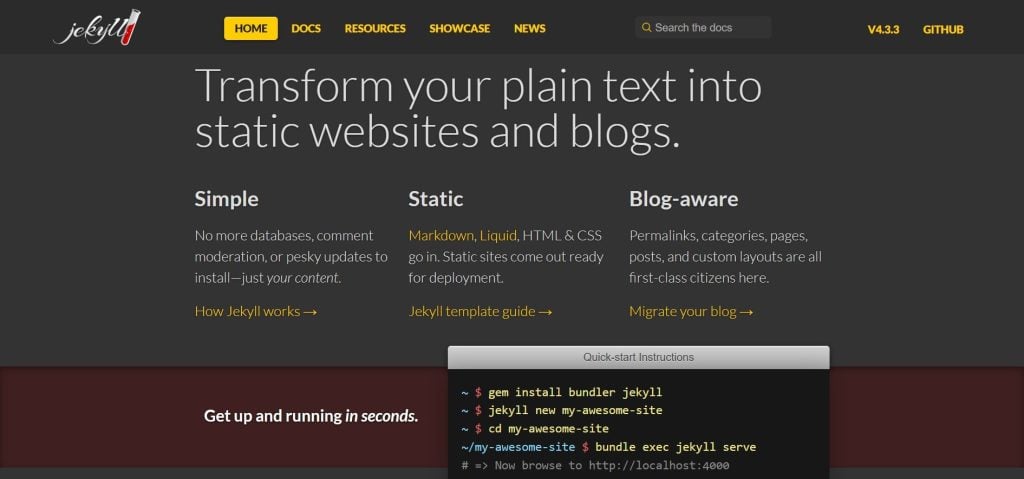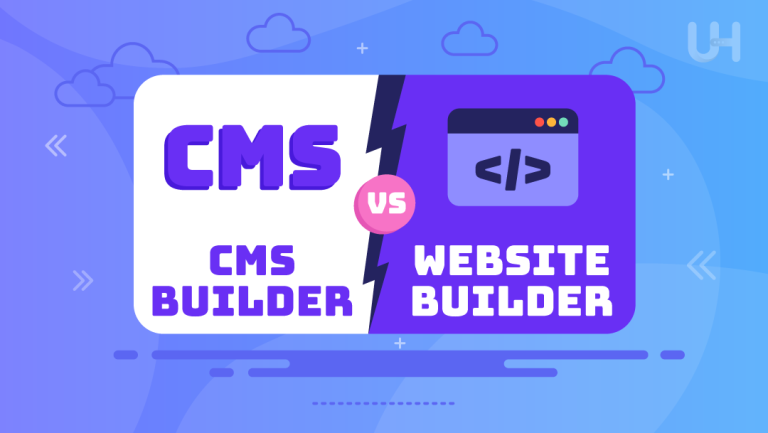Are you looking for the best static site generators (SSGs) to build your website in 2024? Then, you have come to the right place. SSGs are ideal for building static websites that load quickly even on low-bandwidth internet connections. In this article, we will explain everything you need to know about simple static site generators and help you find the best one for your usage.
Building a static website has several benefits. For instance, static sites are cheaper, more responsive, and easy to maintain compared to dynamic sites. Therefore, unless your website needs to display content that updates in real-time, you should use a static site generator. Let’s explore the fundamentals of static and dynamic websites in detail and help you find the top static site generators in 2024. Let’s get started!
What is a Static Site Generator?
A static site generator is a tool that helps you build HTML pages from components, templates, and content sources. It allows webmasters to import and use pre-built HTML pages instead of coding individual webpages from scratch. Therefore, SSGs are the equivalent of Content Management Systems, which are used to generate dynamic websites, store content, and offer pre-made templates.
What is a Static Website?
A static website displays fixed information that does not change with user inputs. For example, blogs, business websites, landing pages, portfolio sites, etc. The content is rendered on the server side, which allows the front-end interface to be more flexible. As a result, static websites are easy to develop, compatible with any cheap VPS hosting plan, and SEO-friendly.
What is a Dynamic Website?
A dynamic website generates content in real-time. These pages use dynamic programming languages, such as JavaScript, PHP: Hypertext Preprocessor, Python, Ruby, etc. instead of HTML. Examples of dynamic sites include contact forms, shopping carts, user registration, etc. These pages process information on the front-end and therefore work better on powerful dedicated hosting plans.
5 Best Static Site Generators for Building Your Website in 2024
Here are the top static site generators in 2024. We compared the key features, pros, and cons to help you find the one that best meets your requirements.
Next.JS

Next.js is one of the most popular static web development frameworks on the market. It is an open-source SSG that helps webmasters create fast and responsive web applications. Next.js offers cutting-edge features from hybrid static and server rendering to smart bundling, TypeScript support, and everything in between.
Key Features
- Built-in Optimizations: You get automatic font, image, and script optimizations for improved user experiences and Core Web Vitals.
- Dynamic HTML Streaming: You can instantly stream the user interface from the server, which is integrated with React Suspense and the App Router.
- Data Fetching: Make your React components async and wait for your data as Next.js supports both client and server data fetching
Pros
- Next.js offers substantial performance improvements through static site generation (SSG) and server-side rendering (SSR)
- The tool improves SEO scores by making it easy for search engine crawlers to index web pages
- Next.js streamline web development with intuitive features like automatic code splitting and hot module replacement (HMR)
Cons
- The tool has a steep learning curve
Hugo

Hugo is a performance-focused static site generator written in Go. The open-source SSG is built to create fast websites and provides an optimal viewing experience for end users. The tool works with any Content Delivery Network (CDN) and runs without relying on expensive runtimes such as PHP, Python, or Ruby.
Key Features
- Lightning-fast Speed: At speeds quicker than <1 ms per second, Hugo is one of the fastest static site generators on the market.
- Robust Content Management: Hugo supports unlimited content types, menus, taxonomies, dynamic API-driven content, and more, without plugins.
- Built-in Templates: Hugo comes with built-in templates that are SEO-optimized, allow commenting, offer analytics tools, and more.
Unlock Your Website’s Full Potential with Fully Managed Dedicated Servers
Ultahost’s fully managed dedicated servers are designed for for web developers and business owners who lack the knowledge or time to manage their own servers.
Pros
- Hugo is user-friendly and easy to set up
- The tool supports cross-platform interaction
- It comes with integrated Google Analytics support
Cons
- Partials can’t be used as shortcodes and vice-versa, making reusability challenging
Gatsby

Gatsby is a powerful open-source web development software that leverages the capabilities of Webpack, React, and GraphQL to generate static web applications. The tool combines intelligent page rendering, deferred static generation, and static site generation to only load important content for the web page, increasing page load speeds.
Key Features
- Performance-focused: You can easily build websites that load quickly, are responsive, and are completely accessible to end users across devices.
- Developer-friendly: The tool has an intuitive user interface that helps webmasters generate stable and visually stunning websites.
- Enhanced Accessibility: You can easily create responsive and accessible websites that work on all devices.
Pros
- The platform creates fast-loading websites
- The tool is SEO-optimized right out of the box
- You can increase the tool’s functionalities using compatible plugins
Cons
- Updates and changes may require a rebuild
Jekyll

Jekyll is an open-source static site generator built using Ruby. It supports the .md extension so you can write in Markdown, and the code is automatically converted to HTML on the build. Jekyll comes with a plugin system that lets you create custom content for your website.
Key Features
- User-friendly Interface: Jekyll simplifies website-building. It takes care of databases, comment moderation, and updates for you.
- Fully Customizable: From Markdown and HTML to CSS and Liquid, it supports a wide range of languages so your static site comes ready for deployment.
- Designed for Blogging: Jekyll streamlines blogging with the help of permalinks, categories, posts, pages, and custom layers.
Pros
- Self-hosting or hosting on GitHub servers is possible
- You can use the tool to create fast-loading websites
- You don’t need to set up and maintain databases and CMS
Cons
- Does not support server-side scripting
Docusaurus

Docusaurus is an excellent static site generator for building single-page applications. It is feature-packed and can be used to create diverse websites from personal blogs and marketing landing pages to product pages, portfolio sites, and more.
Key Features
- Content Search: Users can easily find what they are looking for using the intuitive search function.
- Built Using React: You can extend the functionality of your project’s layout by writing React components.
- Translation-ready: The tool supports localization. You can use your preferred translation manager to translate docs in your native language.
Pros
- The tool is easy to use
- Since it’s written in React, you can customize it according to your requirements
- The powerful document search feature is very handy
Cons
- The tool does not come with a built-in feedback mechanism
Conclusion
That concludes our list of the five best static site generators in 2024. These platforms provide comprehensive solutions for building static pages. You should compare their key features, pros, and cons before making up your mind. If you have any suggestions or recommendations for us, let us know in the comments below, and don’t forget to share this article with your friends or colleagues if you find it interesting.
Looking for a reliable web server to host your static website? Choose Ultahost’s Windows Server for ultra-fast SSD NVMe speeds without dropouts or slowdowns. Plans start at just $15.90/month.
FAQ
Which is the best static content generator?
The best static site generator is the one that meets all your needs. You should compare the best SSGs on the market to make up your mind.
How do I find the best static content generator for my website?
We have handpicked the most popular SSGs above to help you find the most suitable tool for building your website. Compare their key features, pros, and cons to make an informed decision.
What is the difference between an SSG and a CMS?
SSGs develop static pages that are rendered on the server side while CMCs develop dynamic pages that render content in real-time based on user inputs.
SSG vs CMS: Which is better for building my website?
SSGs require a basic knowledge of programming languages and are hence suitable for coders. CMSs, on the other hand, are amateur-friendly, meaning you can create functional websites without writing a single line of code.
Why use a static site generator?
Static site generators can create fast-loading websites due to server-side rendering. If you want to create a website that delivers static content to users, an SSG is the better option than a CMS.












